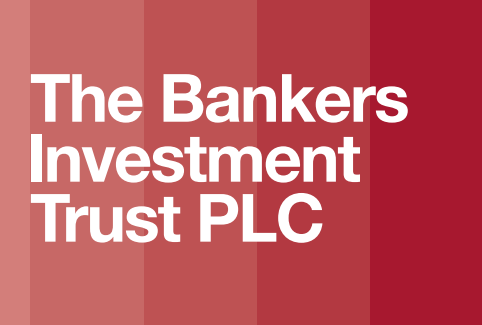Bankers will split its shares after successful year – Bankers Investment Trust has announced results for the year ended 31 October 2020. The NAV total return per share was 5.3%, outperforming the World Index total return of 4.3%. The share price total return was higher, at 8.1%, due to the narrowing of the discount. The chairman says that four of the trust’s five regional portfolios delivered positive returns and outperformed their respective local benchmarks. The exception was the Pacific (ex Japan and China) portfolio. Its performance was ‘severely hampered’ by its value and income investment style.
Revenue earnings per share fell by 22% to 16.83p. The board has decided to pay total dividends for the year of 21.54p (2019: 20.90p), an increase of 3.1%. It is using some of the trust’s revenue reserves to make up the COVID-19-related shortfall in income. This helps maintain the trust’s dividend hero status. This is the 54th year in succession that it has grown its dividend. The revenue reserve will still be £24.3m or 18.7p per share after this payment.
The trust expanded by issuing £57m worth of shares during the year and has issued £10.7m worth since the year end.
The shares are about £11 each. The board has decided to split them so that each shareholder will have 10 shares for every one that they hold now. This makes it easier to invest small amounts in the company.
Extract from the managers report
“For Bankers, the regional portfolios generally performed very well during the year, reflecting good stock picking. The US, Japan and China portfolios all outperformed their local indices by more than 10%. The Europe (ex UK) portfolio also performed credibly, outperforming by 7.7%. The UK market performed badly, falling nearly 20% over the year due to its higher concentration of banks and oils and having fewer technology companies. The long shadow of Brexit continued to weigh on the UK market and Covid-19 restrictions hurt the service industries in the UK particularly hard. The UK portfolio outperformed marginally, giving up the better performance we built up in the summer, as it became apparent that hopes of a Brexit deal were receding.
The Pacific (ex Japan and China) portfolio was the only region to underperform, ending the year significantly behind the benchmark. There was disappointing stock selection, for example the position in Treasury Wine Estates. However, the major reason was our not owning the high growth Chinese technology companies listed in Hong Kong. Our investment style in this portfolio is both value and income driven which has served us well for many years but lagged the market this year.”
Food for thought
The manager’s report also contains the following, which we thought was interesting. “The continued decline in interest rates is also having a fundamental impact. A bizarre effect of negative interest rates in Europe means that the value of future profits is worth more to investors than current or next year’s profits. Investors are being incentivised to take on more risk and this has been inflating the value of businesses years away from profitability. The effect was observable in the US market during the year, where the share price performance of loss making businesses on average outperformed the price performance of those businesses that produced a profit.
Many commentators have predicted an unsustainable bubble in prices of technology shares. While animal spirits are undoubtedly at play, there is not the blind optimism that fuelled the last tech boom in the 90s. Many of the largest technology companies are highly profitable and probably only government intervention to break up these companies will derail their domination of certain segments of the economy.”
BNKR : Bankers will split its shares after successful year

Why is this for. The shares are not highly priced so are readily marketable. What will be the cost of this exercise.
The idea is to make it easier for investors who invest relatively small amounts of money – typically for regular savers or those reinvesting their dividends. We have never seen a cost estimate for this exercise. It might be worth writing to the company secretary and asking them.